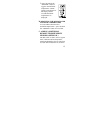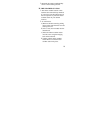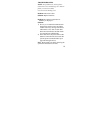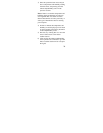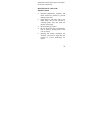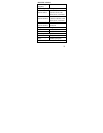21
Problem: Temperatures do not match if
units are placed next to each other.
Solution: Each temp/humidity sensor is
manufactured to be accurate to within 2
degree plus or minus and under normal
conditions. It is possible for two
temp/humidity sensors to be as much as 4
degrees different. The difference can be
exaggerated further because the
temp/humidity sensors are designed for
different working environments. The indoor
sensor is less responsive to ambient air
currents because of the shielding effect of
the indoor weather station’s case. In
addition, the casing can act as a heat sink to
absorb and store heat from external sources
(i.e. handling of the case or radiant heat). In
addition, the much greater range of the
outdoor temp/humidity sensor requires a
different calibration curve than the indoor
range. Error is usually greater at the extreme
ends of a range, making it harder to compare
different ranges with different curves. Under
non-laboratory conditions, it is difficult to



